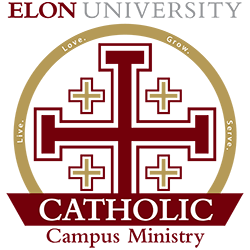John Henry Newman, a great scholar, teacher, and pastor, is attributed with the founding of Catholic Student Clubs on college campuses, such as our very own Newman Center. His writings encouraged and inspired societies for Catholic students attending secular universities.
Originally an evangelical Oxford academic and clergyman in the Church of England, Newman was a leader in the Oxford Movement, a High Church effort by an influential grouping of Anglicans wished to return the Church of England to many beliefs and foundations of the Catholic faith--the sacraments, episcopal governance, and apostolic succession. However, through his studies, he soon became convinced that Rome, not Canterbury, was the home of the true Church.
Newman then began a new life as a Roman Catholic. He was officially received into the Church on October 9, 1845, and was ordained to the priesthood the next year. His work with the Church included establishing the Oratory of St. Philip Neri near Birmingham in 1848 and helping to create the Catholic University of Ireland, now University College, Dublin (U.C.D.), where he served as rector from 1854 to 1858. It was during this time that he founded the Literary and Historical Society, a debating society which is now one of the most prestigious and well-known student societies in Ireland. In 1858, Newman projected a branch house of the Oratory at Oxford. When Catholics did begin to attend Oxford from the 1860s onwards, a Catholic club was formed and, in 1888, it was renamed the Oxford University Newman Society in recognition of Newman's efforts on behalf of Catholicism in that university city.
The 1870s brought Newman special recognition for his work as both an Anglican and a Roman Catholic. In 1877 he became the first person elected to an honorary fellowship of Trinity College. At the age of 78, in recognition of his vast contribution to the Church as one of the preeminent theologians of the 19th century, Pope Leo XIII made him a Cardinal. His many scholarly works were a significant force that helped shape religious thought not only in his own time, but also throughout the 20th century. His historical, sacramental and scriptural approaches to theology so much anticipated those of the twentieth-century Church that he is often called "The (Absent) Father of Vatican II."
Cardinal Newman's "The Mission of My Life"
God has created me to do Him some definite service. He has committed some work to me which He has not committed to another. I have my mission. I may never know it in this life, but I shall be told it in the next. I am a link in a chain, a bond of connection between persons. He has not created me for naught. I shall do good; I shall do His work. I shall be an angel of peace, a preacher of truth in my own place, while not intending it if I do but keep His commandments. Therefore, I will trust Him, whatever I am, I can never be thrown away. If I am in sickness, my sickness may serve Him, in perplexity, my perplexity may serve Him. If I am in sorrow, my sorrow may serve Him. He does nothing in vain. He knows what He is about. He may take away my friends. He may throw me among strangers. He may make me feel desolate, make my spirits sink, hide my future from me. Still, He knows what He is about.

